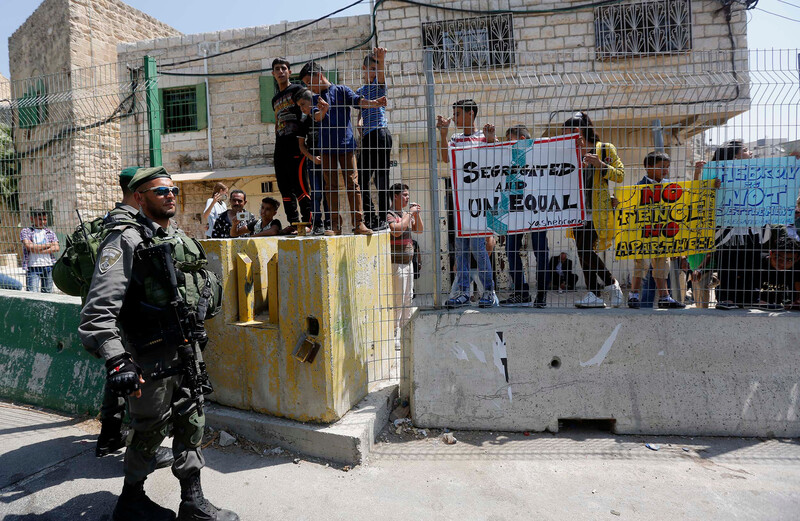Activism and BDS Beat 8 June 2023

Faith-based leaders in the US are calling on congregations to take a bold stand against Israeli apartheid.
APA imagesInspired by the movement that helped dismantle the apartheid regime in South Africa, dozens of faith-based groups in the US this week launched an initiative to take action against Israeli apartheid.
The Apartheid-Free Communities initiative, convened by the American Friends Service Committee, a Quaker organization, encourages faith groups to pledge “to step away from any and all support to Israeli apartheid, occupation, and settler colonialism.”
More than 80 groups have already signed the pledge, including three denominations: the United Church of Christ, South Central Yearly Meeting (Quaker) and the Alliance of Baptists.
Many other interfaith, Christian, Jewish and Muslim organizations have also signed on.
The initiative developed last year during an ecumenical gathering to assess “how to bring churches on board because of the particular need to educate and motivate churches to make a stand,” Reverend Allison Tanner, national organizer for the initiative, told The Electronic Intifada.
The campaign was born out of a response “to the direct request of Palestinian civil society to create apartheid-free zones,” she said, and from recognizing the need “to ignite congregations more fully in the work.”
For years, churches and other faith-based groups have participated in divestment campaigns while calls to stand against Israeli apartheid have grown.
Last year, the Presbyterian Church USA – which has more than a million members around the country – affirmed that “the government of Israel’s laws, policies and practices regarding the Palestinian people fulfill the international legal definition of apartheid.”
The church has worked since 2014 to divest from US companies that profit from Israel’s abuses of Palestinian rights.
The Presbyterian church recommended that its members and staff “seek appropriate ways to bring an end” to the racist policies of apartheid, containment and colonial violence.
Other Christian denominations across the US have taken similar steps to oppose Israel’s apartheid and occupation policies in Palestine.
Notably, Palestinian churches have played a key role in boosting support for divestment among North American congregations.
In 2009, Palestinian Christians issued the Kairos Palestine document, calling on churches around the world to take action for justice, including specifically support for the boycott, divestment and sanctions (BDS) movement.
However, Tanner explained that the church-based divestment initiatives have reached a plateau.
“We wanted to fire up those groups again – but there is also a recognition that what happens at the denomination level doesn’t trickle down into the pews,” she said.
The Apartheid-Free Communities initiative, she noted, focuses on educating congregants in order to support collective action in order to have a material effect on Israeli policy.
The pledge that faith-based communities and individuals can take, Tanner explained, “was written very succinctly and very focused: if you’re against racism, if you’re against bigotry, then you ought to be against apartheid.”
It serves “not only to say you’re against apartheid, but to name Israeli apartheid, to commit to take action against Israeli apartheid and to become part of a network that helps you think through and live out these commitments.”
Tanner and other faith-based leaders recently returned from a delegation to Palestine, organized by the American Friends Service Committee.
What she saw, she said, “was the direness of the situation. And the starkness of what people are facing … that was really heavy. Our whole group is still grieving and dealing with some secondary trauma from witnessing that so intensely.”
In speaking with people she met across historic Palestine who are facing accelerated land theft, systemic violence and military occupation, there was a sense, on the one hand, that there is widespread hopelessness.
But on the other hand, she added, there was a feeling “that things are changing – and we don’t know what that change is going to look like. [But] it gave us an urgency in the work that we’re doing now.”





